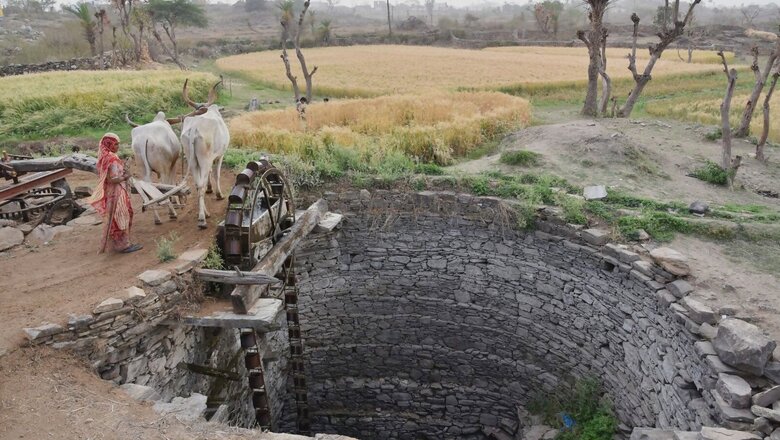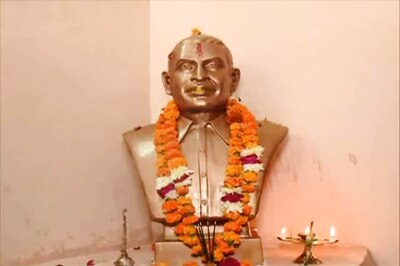
views
Punjab, India’s largest extractor of groundwater, struggles to find ways to conserve the fast-dwindling resource. Regulatory authorities are stricter and impose higher charges to rein in groundwater use but are far away from the objective. On one hand, to attract investment, the Punjab government has announced a new industrial policy offering a series of incentives, but on the other hand, another significant disadvantage for the industry has been added. Punjab is India’s first state that levied very high charges and strict patrolling on groundwater extraction for industry and other non-exempted users.
A land-locked border state, Punjab’s industries are already reeling under location disadvantage far away from the seaports, but the Punjab Water Regulation and Development Authority (PWRDA) has taken this negative lead in a hurry and added one more disadvantage. We need to think of groundwater as a common pool vital resource and look at it from a rights perspective.
Our competitors, like the state of Uttar Pradesh, have not taken any hard decision yet and the industrial state Maharashtra charges only Rs 3.20 per kiloliter (1000 litres). Neighbouring state Haryana levies a flat rate of Rs 10 per kilolitre for industry (MSMEs exempted), while PWRDA has levied multiple slab charges upto Rs 22 per kiloliter on industrial (99.7 percent MSMEs), commercial, educational and infrastructural entities to extract the groundwater. Such a harsh decision would dilute the sentiments of ‘ease of doing business’ in the state, especially in the context of the ‘Invest Punjab Summit’, being held this month. Before such a negative command, the regulatory authority needs to look at it rationally. Therefore, a holistic participatory approach to groundwater management would be more effective and productive to achieve the goal of sustainable conservation.
Punjab’s industries extract merely one percent of groundwater and were paying monthly cess already. Now the regulatory authority has invited much complexity in the extraction process of groundwater like random inspection, monthly water level data with piezometer, annual water audit, penalties upto Rs 2 lakh and if NOC is not taken then compensation charges upto Rs 1.10 lakh per day, all these attempts to spur Inspector Raj and to fuel corruption.
PWRDA has categorised new levies in three zones – green, yellow and orange based on the extent of annual groundwater extraction in comparison to recharge. In the green zone, the charges vary between Rs 4 to Rs 14 per kilolitre, in the yellow zone Rs 6 to Rs 18 and in the orange zone the charges are Rs 8 to Rs 22 per kiloliter extraction of groundwater. Earlier the cess paid by the industry under the Water Cess Act 1977 (Prevention & Control of Pollution) was flat 30 paisa per kilolitre, now if any water-intensive industry such as textile & yarn, tannery, paper & pulp, packaged drinking water, distillery and soft drink unit located in the orange zones like Ludhiana, Jalandhar and Amritsar, extracts more than 75,000 kilolitres of groundwater in a month, they will have to pay Rs 12,51,600 per month. An earlier monthly cess was just Rs 22,500.
Robust Groundwater Policy Needed
The Green Revolution led by Punjab in the 1960s to increase food production led to the widespread use of tube wells, resulting in faster depletion of groundwater as 96 percent is being extracted for agriculture practices, which needs to be rationalised to balance the usage. Thus, a robust groundwater pricing policy is needed. A state like Maharashtra is enacting laws to regulate agriculture tube wells and limit the type of crops that can be grown in water-deficit areas. Agriculture, drinking and domestic purposes, government water supplies and places of worship and extraction of not more than 300 kilolitres per month in any category are exempted from the extraction of groundwater charges in Punjab.
Groundwater extraction for irrigation results in faster depletion. The tube wells owned by big farmers (land holding more than 10 hectares) and NRIs also extract unlimited groundwater, without pricing. At least big farmers and NRIs should be inducted in the net of volumetric groundwater extraction charges.
A report on the dynamic of water resources of Punjab released in December 2022, reveals that out of the total 153 blocks in the state, 117 blocks are over-exploited including Ludhiana, Amritsar and Jalandhar city, four blocks are critical and 15 are semi-critical, whereas only 17 blocks are safe in the extraction of groundwater, mostly in Kandi areas. In central Punjab, groundwater extraction has already reached 200 metres to 300 metres. “If the present depletion continues, Punjab’s groundwater is expected to drop below 300 metres by 2039,” as per the Central Ground Water Board.
The average stage of groundwater extraction in Punjab is 164 percent, the highest in the country. Annual groundwater availability is 17.07 billion cubic metres and the existing groundwater draft for irrigation is 26.69 billion cubic meters and 1.32 billion cubic meters for domestic and industrial use. Therefore, traditional agriculture practices should be phased out with ‘more crop-per drop’ techniques.
The Way Forward
As a common pool natural resource, groundwater is vital for all, and should not be treated as an entity to earn revenue. Though groundwater conservation is an environmental cause, high charges and strictness on very few customers would not fulfill the objective. The complexity of the compliances will have to be simplified before it becomes another disadvantage for the industry of Punjab.
The writer is Vice-Chairman of Sonalika group, vice-chairman (Cabinet minister rank) of Punjab Economic Policy and Planning Board. Views expressed are personal.
Read all the Latest Opinions here




















Comments
0 comment